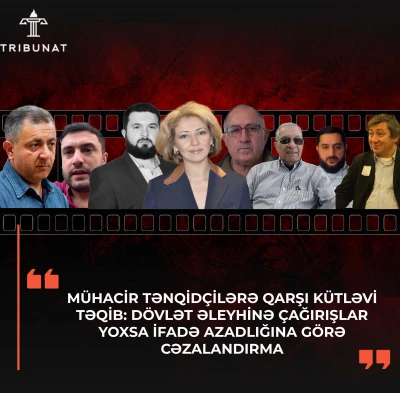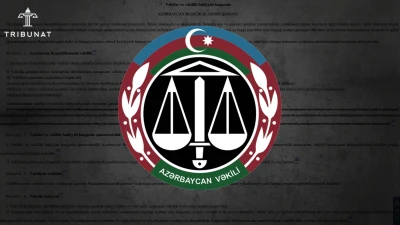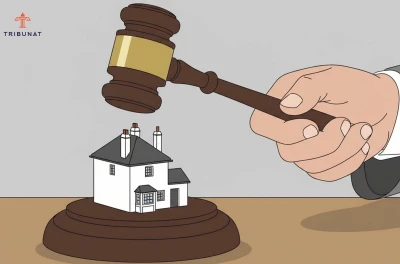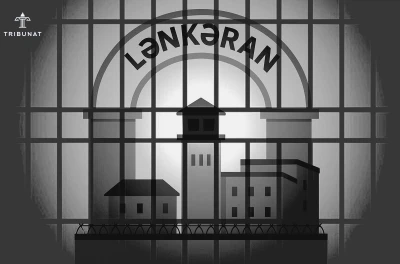What rights are violated by annulment of an ID card?
Analysis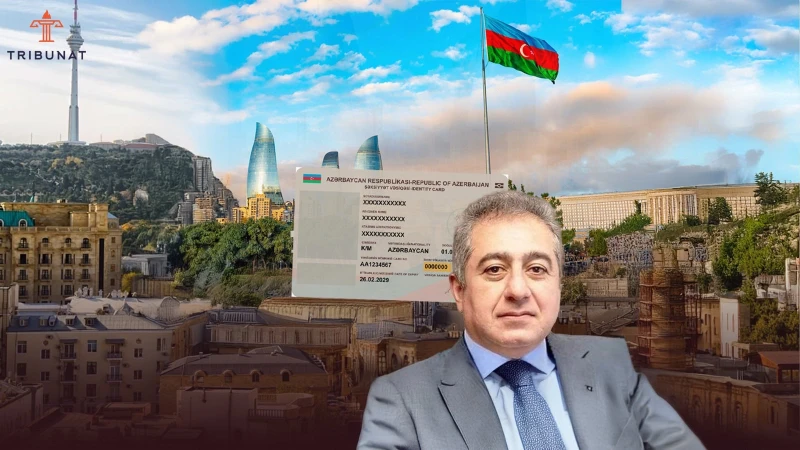
Economist Gubad Ibadoglu, who is placed under police custody as a preventive measure in a criminal case against him, told Voice of America that his ID card has been deactivated. He said that although the ID card is valid until August 2031, it is impossible to carry out any operations with the document. While the Ministry of Internal Affairs has been contacted in this regard, the problem still remains.
“Tribunat” investigated the legality of deactivation of the ID card of the accused, who is under police custody as a preventive measure.
Initially, the Law “On the Identity Card of a Citizen of the Republic of Azerbaijan” and the Regulations on the application of the aforementioned Law do not provide for the concept of annulment of an ID card and the legal consequences. Both regulatory documents list the validity periods, the grounds for replacement, etc.
It can be assumed that the matter concerns the record of information on the modification of the ID card and its active status into the “Entry-Exit and Registration” interdepartmental automated information search system (IAMAS).
Article 6 of the Law on Identity Cards and Paragraph 4 of the Regulations stipulate that the ID card of a citizen who has been subjected to arrest, house arrest or bail, sentenced to a imprisonment, or sent to a closed special educational institution shall be temporarily seized by the investigation, preliminary investigation, judicial bodies and bodies executing the sentence and shall be attached to the proceedings on the case or to the personal file of the individual. Upon these grounds cease to exist, the ID card shall be immediately returned to the owner.
Gubad Ibadoglu, arrested on July 23, 2023, was released to serve house arrest on April 22, 2024. On May 21 of the same year, the house arrest was replaced by his transfer to police custody by the investigator's decision. On July 29, 2024, the criminal prosecution against Ibadoglu was suspended indefinitely.
Shortly after Professor Ibadoglu was released from house arrest, the Main Department for Combat with Organized Crime of the Ministry of Internal Affairs, which is investigating the criminal case against him, returned his ID card. According to the economist, the ID card has since been deactivated.
In accordance with the Code of Criminal Procedure (CCP), the preventive measure of police custody implies that the suspect or accused cannot leave the place of permanent residence or temporary stay within the boundaries of the settlement without the permission of the detective, investigator, prosecutor or court. The accused must also arrive at the police station according to the schedule determined by the police and get registered. The suspect or accused may be summoned to the police station at any time to monitor his behavior, or police officers may arrive at the apartment of the accused to summon.
The restrictions that may be imposed on a person placed under police custody are fully covered by the list specified in procedural legislation. These include a specific area that the suspect or accused cannot leave without permission, the inability to change his or her permanent or temporary place of residence, the obligation to report to the police authorities according to a schedule, to get registered and the like.
However, the obligation to not be able to carry out any operations with an ID card is not amongst these restrictions.
In addition, unlike house arrest, police custody of the accused does not involve the temporary seizure of an ID card.
According to paragraph 5.10 of the Instruction “On the Procedure for Application of the Measures of Police Custody and House Arrest”, approved by the decision of the Ministry of Internal Affairs of the Republic of Azerbaijan dated 19.09.2012, № Q48-001-12, violation of other rights of suspects or accused who have been placed under preventive measures of police custody and house arrest, not restricted by criminal procedural legislation, is inadmissible.
Simultaneously, the United Nations Rules of “Minimal Standard for Non-custodial Measures” upon implementation of non-custodial measures, the rights of the accused shall not be restricted beyond what is permitted by the competent authority that made the initial decision (paragraph 3.10). Furthermore, when implementing these measures, the right to privacy of the offender and own family must be respected (paragraph 3.11). According to paragraph 2.6 of the Rules, non-custodial measures should be applied in accordance with the principle of least intrusion.
Secondly, the Law “On the Identity Card of a Citizen of the Republic of Azerbaijan” and the Regulations on the Implementation of the aforementioned Law do not prohibit a person under police control from conducting any operations with an ID card.
Article 32, paragraph 2, of the Constitution of Azerbaijan and Article 8 of the European Convention of Human Rights, to which the State is a party, protect everyone from unlawful interference with their private life. The right to privacy is considered to be the right of a person to exercise his or her rights and regulate his or her private life free from external intervention. This article guarantees the obligation of the state not to intrude in the private life of individuals.
Gubad Ibadoglu's inability to conduct any operations with his ID card, which is valid until August 2031, goes beyond the scope of restrictions imposed on a person placed under police custody and should be considered an interference with the right to respect for private life as provided for in Article 32 of the Constitution of Azerbaijan and Article 8 of the European Convention on Human Rights.
The European Court of Human Rights (ECtHR) also clarified in Smirnova v. Russia that an internal passport (ID card) is also required for essential needs in a person’s daily life, such as obtaining medical care or carrying out financial transactions. The deprivation of a passport therefore constitutes a continuous interference with the applicant’s private life. In this case, the key issue is whether that interference is justified under Article 8 § 2, in particular whether it is “in accordance with the law” and “necessary in a democratic society” for one of the purposes listed in that paragraph (Smirnova v. Russia, § 98).
An interference is considered a violation of the right to private life if it does not meet one of the conditions set out in Article 8 § 2 of the Convention (national security, public order, the economic interests of the country, the prevention of disorder or crime, the protection of health or morals, the protection of the rights and freedoms of others). The Court recalls that the expression “in accordance with the law” requires, first of all, that the measure complained of has a basis in domestic law (§ 100).
Professor Ibadoghlu’s case demonstrates that the deactivation of the ID card of an individual who has been placed under police custody is not provided for in domestic law. Therefore, there is no need to examine whether the alteration in the status (deactivation) of his ID card pursues any of the other two conditions of the trifold test – whether it pursues a legitimate aim listed in Article 8 § 2 of the Convention and is necessary in a democratic society.
“Tribunat” concludes that, change of the active status of the ID card of economist Gubad Ibadoglu violates his right to privacy. This interference creates obstacles in carrying out vital activities in an individual’s daily life, such as medical care and financial transactions. In addition, the suspension of the ID card's active status means taking away an important legal tool confirming the economist’s identity and ensures his participation in legal relations.
“ameriakninsesi.org”, Qubad İbadoğlunun vəsiqəsi fəaliyyətsiz edilib
“E-qanun”, Azərbaycan Respublikası vətəndaşının şəxsiyyət vəsiqəsi haqqında Qanun
“E-qanun”, “Azərbaycan Respublikası vətəndaşının şəxsiyyət vəsiqəsi haqqında” Azərbaycan Respublikası Qanununun tətbiqi barədə əsasnamə
“E-qanun”,Azərbaycan Respublikası Cinayət Prosessual Məcəllə
“E-qanun”, “Polisin nəzarəti altına vermə və ev dustaqlığı qətimkan tədbirlərinin tətbiq edilməsi qaydası haqqında” Təlimatı
“unodc.org”, Birləşmiş Millətlər Təşkilatının “Həbslə əlaqədar olmayan tədbirlərə dair minimal standart” Qaydaları
“E-qanun”, Azərbaycan Respublikası Konstitusiyasının
“Hudoc.echr”, Avropa İnsan Hüquq və Azadlıqları Konvensiyası
“Hudoc.echr”, Smirnova Rusiyaya qarşı

